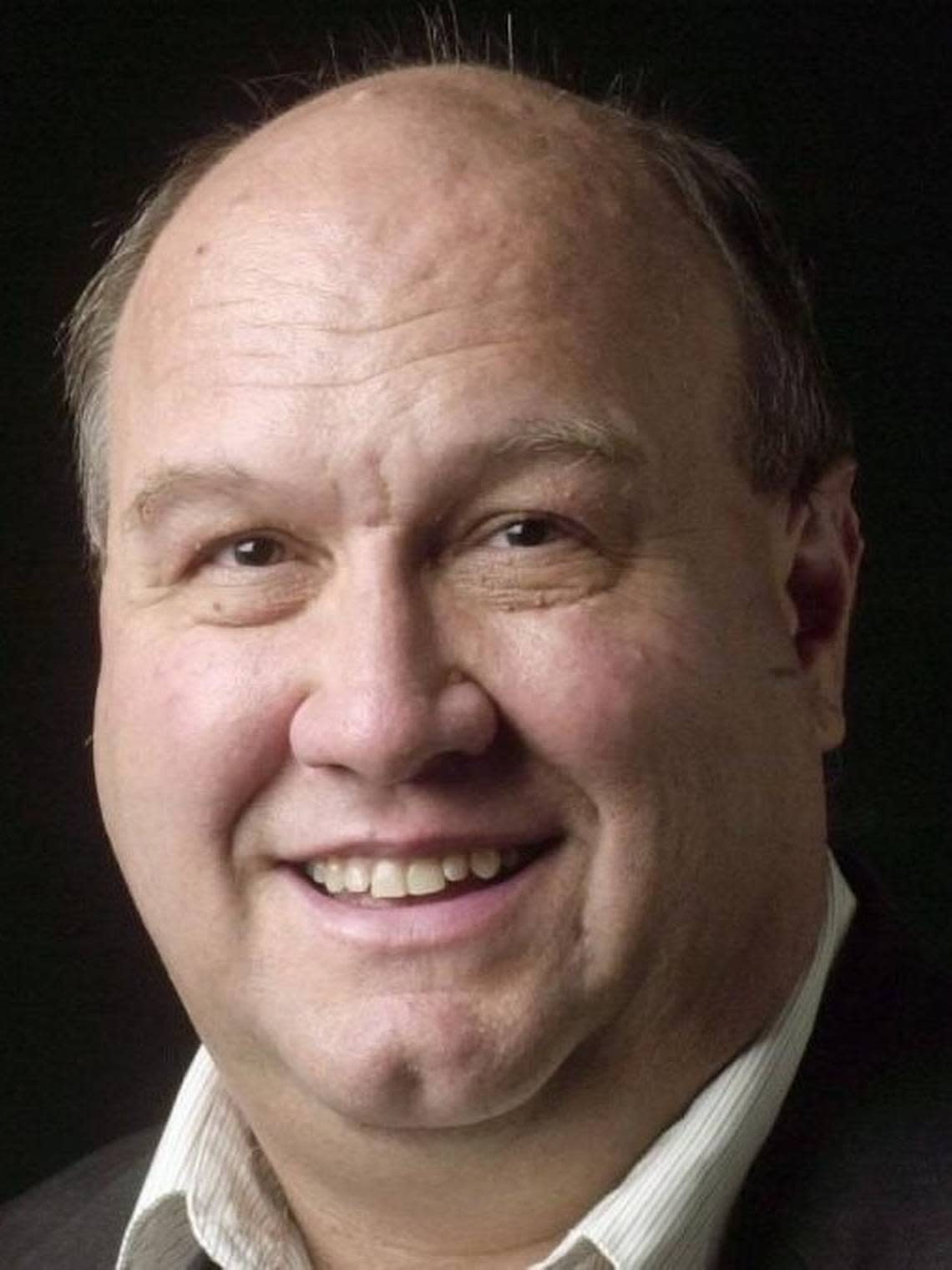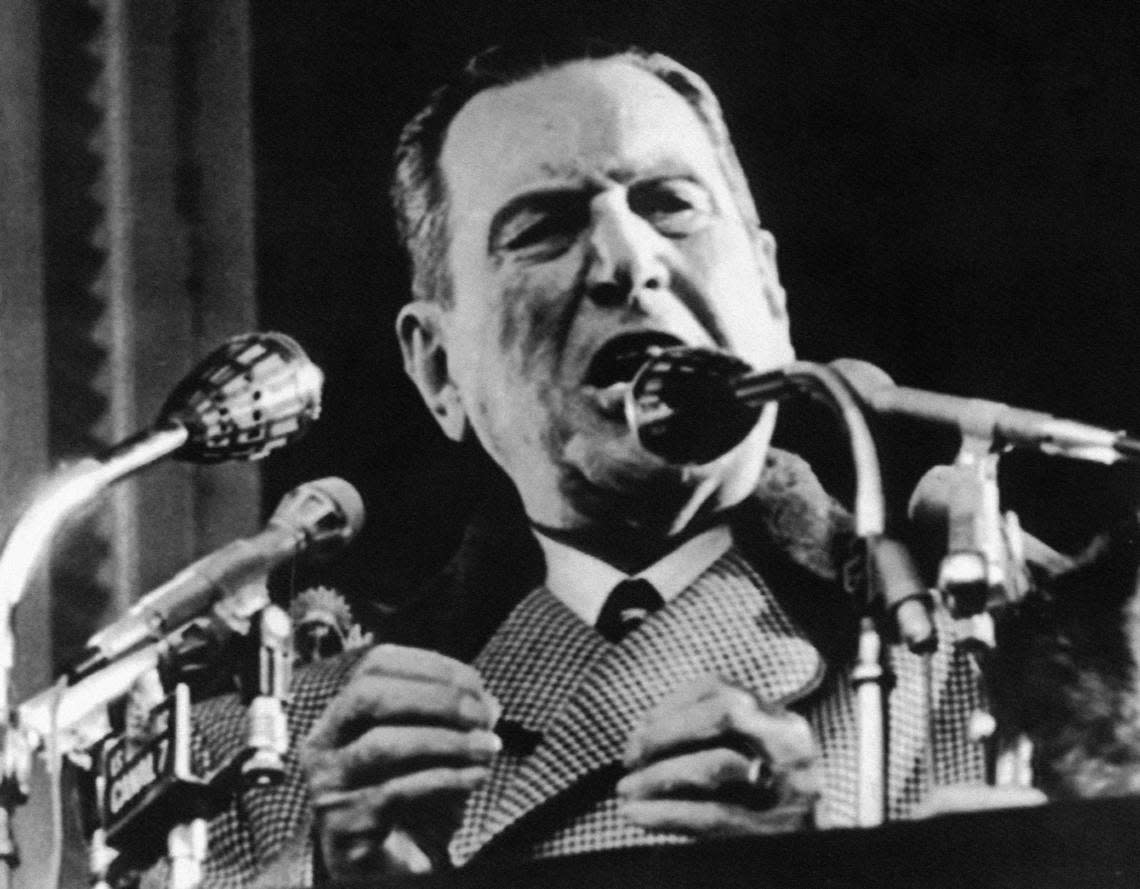They have Milei. We have Trump. We’re closer to Argentina’s chaos than we think | Opinion
The recent victory of eccentric populist politician Javier Milei in Argentina’s recent presidential election is more important to our country than it might seem to most of us.
That is because when we look at Argentina, much of the fecklessness and chaos that we see is a mirror image of our own.
Argentina has perennial economic problems because its political system perennially fails. Could the same be true for the United States? The similarities are closer than our pride lets us admit.

The news from Argentina could have been headlined in various ways:
“Authoritarian populism returns to Argentina”
“Argentina’s new president promises radical economic changes”
“Argentina’s elections follow Donald Trump’s political model”
“Lenders fear yet another default as Argentina chooses radical path”
“Continued deadlock between Peronists and free marketers leads to radical third party president”
All of these headlines would essentially be true. Yet none would capture anything near the entirety of that unfortunate nation’s serial crises.

That these crises are almost entirely of Argentina’s own making is also true. So is the fact we Americans are willingly entering a similarly dangerous, uncomfortable, ramshackle political and economic environment that we ourselves constructed.
Start with some basics: Argentina is a large country rich in natural resources. It has eight times the land area of Germany with just over half the population. Our country has 3.3 times Argentina’s area and 7.1 times its population.
Moreover, Argentina’s resources include a favorable climate, vast productive agricultural areas, minerals, petroleum, cheap internal transport and export capacity and a relatively well-educated people for its region. It long led South America in industrialization.
Yet its economy has underperformed for a century. Its politics have been locked in a stalemate for seven decades.
In short, it is a living laboratory for econ profs. Many see it as a nation with the highest ratio of natural resources to population, and then contrast it with tiny, resource-scarce but high-income Netherlands, as proof that there is little relationship between a nation’s natural endowments and the prosperity and well-being of its citizens. The extenuating factor? A history of favoring personality over policy. Milei, an economist and former TV commentator, fits right in.
In 1900, Argentina was a wealthy major exporter of wheat and meat, in the same league as Canada and Australia and lagging the U.S. only in degree of industrialization. The standard of living for its citizens was well above that of Chile to the west and Brazil to its north and somewhat better than Uruguay, its similar neighbor just across the River Plate.
Now its output per capita is only 46% of Australia’s or Canada’s and 20% below that of next-door Chile and Uruguay.
So what happened?
Argentina’s economy in 1900 followed the free-market ideals of British economist John Stuart Mill, with virtually no government regulation of business and with large landowners and industrial barons dominating government. Workers, rural or urban, had little economic, legal or political power. Income distribution was highly unequal and working conditions often hellish.
Of course there was a reaction. And just as Javier Milei resembles Donald Trump today, so Gen. Juan Peron, an authoritarian populist who promised better lives for the “descamisados,” or shirtless poor, resembled Italy’s Benito Mussolini in his day. Peronism gave power to state-sponsored labor unions and regulated “corporate” sectors, such as agriculture, industry, the press, finance, intellectuals and education. “Corporate” here being used for its meaning in Italian Fascism and not in the U.S. sense of a business legal organization — that of divergent professional bodies working as a separate quasi-political force.

Peronism brought economic justice, but sapped growth and provoked a reaction from traditionally powerful landowning, industrial and financial elites. Over the last 70 years, the presidency has yo-yoed between these extreme interests. The legislative branch, modeled more on the U.S. Congress rather than on European parliaments, is fragmented among multiple parties, some the vehicle of only one charismatic individual.
The cycle of economic crises started with a seizing-up of foreign trade and defaulting on international debt. Restructuring mandated by the International Monetary Fund as a condition of new money has taken place but has been ineffective.
Opposing factions swap the upper hand in Argentina’s legislature, but they have neither a coherent program nor clear legislative majority needed for reform. Corruption and “rent-seeking” by sectors wanting particular advantages from government action are rampant.
Dynamic, often flamboyant, leaders, like Carlos Menem in the 1990s, may gain the presidency and bring about booms that last a few years before petering out, thus touching off another crisis.
Outsiders may see this as a feature of all of Latin America. But quiet Uruguay across the estuary soldiers ahead without currency crises, defaults and charismatic politicians making extravagant promises. Uruguay’s health, education and income distribution are all better than Argentina’s.
Chile had the tragic, violent Pinochet regime, but since then has fitfully ground ahead without the drama of its neighbor to the east of the Andes.
Now Argentina’s government nears bankruptcy once more. The entire nation is busted internationally again. Inflation is at an extreme.
And the presidential pendulum has swung to an exotic opposition figure promising drastic changes, including eliminating the central bank, eliminating regulation, rampant privatization, lopping off entire government ministries and completely replacing the peso with the U.S. dollar.
This draws international attention, but none of it will happen.
Abolishing the central bank is as nutty as U.S. Democrats calling for defunding the police or U.S. Republicans wanting to defund the IRS. Laws still need to be enforced, and taxes still must be collected.
And a nation’s domestic financial and monetary system, together with its international trade and finance flows, don’t manage themselves. You cannot use the dollar as a currency if you do not have dollars. No one is going to lend serial defaulter Argentina the tens of billions of dollars needed for a domestic currency.
Milei swears he will respect the power of a congress that is as dysfunctional and paralyzed as our own. So his coming to power likely will produce only minuscule actual change. Slow-motion tragedy will continue.
Now, let’s look in the mirror: Our Congress is as paralyzed as Argentina’s. Washington’s deadlock creates over-expectations for presidents and for the Federal Reserve.
We’ve also built an entitlement culture funded largely on borrowing because of a reluctance to raise taxes. Corporate culture, in the U.S. sense, has made health care, advanced education and housing increasingly less affordable.
As worker dissatisfaction intensifies, is Trump our Peron? Our Milei?

The conditions seem ripe for a change, and not for the better.
And in the meantime, like Argentina, we are tethered to a legislative branch engaged in internal versions of what political philosopher Thomas Hobbes called “a war of all against all.”
Don’t expect much improvement here any more than in our distant neighbor to the extreme south.
Reach economist and writer Edward Lotterman at boise@edlotterman.com.
This is what’s better about our economy today than in ’70s and ’80s — and what’s worse
Congress raised the debt limit. But the economic cost of heavy spending persists
